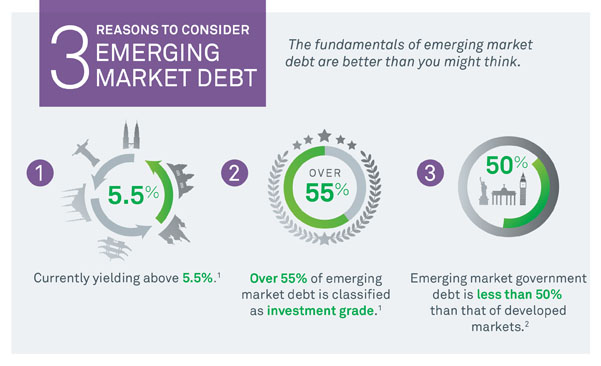
If you are concerned about investing in recessions, here are some ideas: Investing in sectors that will be profitable during the cycle such as consumer staples is a good idea. You might also consider bonds. Procter & Gamble are just a few examples of companies that fall under the umbrella of consumer staples, which is the largest sector for defensive measures. These companies provide stability for the economy and can help protect your money during economic recovery.
Investing within non-cyclical industries
If you are in times of economic uncertainty, it may be worth investing in stocks from non-cyclical sectors to help you save your money and minimize losses. Recessions can be a great opportunity to buy stock in companies that provide the goods and services that people desire. These companies include restaurants, fashion, and home-improvement items.
The economy does not affect non-cyclical industries. These industries will continue to produce good returns even during a recession. These companies are less likely to experience a recession and have shorter product lifecycles. These companies also tend to be highly efficient, with a high return on equity. Look for the company's average historical return on equity when choosing a stock stock to invest in. This information is critical to determine its value during recessions.

Investing in dividend-producing stocks
You can invest in recessions by buying dividend-producing stocks. These stocks will give your portfolio a cushion during times of market volatility and the dividends can also serve as your dollar-cost averaging strategy. In a recession, active mutual funds have a tendency to outperform the rest by up to four to six percentages. Likewise, bonds tend to do well during these times. However, you should make sure that you only invest in investment-grade bonds.
Dividend-producing stock are more conservatively valued than other types. But you should still do your due diligence before investing in any kind of stock. If a company is making high dividends it may have to cut them if economic conditions worsen. Remember, past performance does NOT guarantee future performance.
Investing In Fast Food Restaurants
One of the best ways to make money in a recession is to invest in fast-food restaurants. These businesses have a tendency to earn steady profits, which is unlike other tenants. The pandemic saw a decline in sales at drive-thru restaurants during which time they barely lost any revenue. By mid-2021, they had recovered, rising eight percent to $38.2 billion.
Fast food is not considered a secure investment. Many restaurants have shut down because of the pandemic. However, fast food brands have maintained their popularity due to their low prices and high quality meals. Another smart way to make some money in a recession is to invest in franchises. People are seeking franchises to invest in their future.

Investing in bonds
Bonds are one of most popular investments during recessions. These securities are debt units issued by governments or companies. Investors get regular payments in exchange. Investors also receive their initial investment back once the bonds mature, which preserves their capital. A good way to protect your capital during a recession is to invest in bonds with high quality credit ratings.
Recessions also tend to bring down interest rates, which reduces the risk of inflation eating into fixed interest payments. Low interest rates also help boost bond prices as new bonds are issued with lower yields. The inherent value of bonds that are already in existence rises in line with current market conditions.
FAQ
Why is a stock called security.
Security is an investment instrument whose value depends on another company. It may be issued by a corporation (e.g., shares), government (e.g., bonds), or other entity (e.g., preferred stocks). If the asset's value falls, the issuer will pay shareholders dividends, repay creditors' debts, or return capital.
What is a Reit?
A real estate investment Trust (REIT), or real estate trust, is an entity which owns income-producing property such as office buildings, shopping centres, offices buildings, hotels and industrial parks. These companies are publicly traded and pay dividends to shareholders, instead of paying corporate tax.
They are similar to a corporation, except that they only own property rather than manufacturing goods.
Why are marketable securities important?
An investment company exists to generate income for investors. It does so by investing its assets across a variety of financial instruments including stocks, bonds, and securities. These securities are attractive because they have certain attributes that make them appealing to investors. They are considered safe because they are backed 100% by the issuer's faith and credit, they pay dividends or interest, offer growth potential, or they have tax advantages.
The most important characteristic of any security is whether it is considered to be "marketable." This is how easy the security can trade on the stock exchange. It is not possible to buy or sell securities that are not marketable. You must obtain them through a broker who charges you a commission.
Marketable securities are government and corporate bonds, preferred stock, common stocks and convertible debentures.
These securities can be invested by investment firms because they are more profitable than those that they invest in equities or shares.
What's the difference between marketable and non-marketable securities?
The principal differences are that nonmarketable securities have lower liquidity, lower trading volume, and higher transaction cost. Marketable securities on the other side are traded on exchanges so they have greater liquidity as well as trading volume. Marketable securities also have better price discovery because they can trade at any time. But, this is not the only exception. Some mutual funds are not open to public trading and are therefore only available to institutional investors.
Marketable securities are less risky than those that are not marketable. They typically have lower yields than marketable securities and require higher initial capital deposit. Marketable securities are generally safer and easier to deal with than non-marketable ones.
For example, a bond issued by a large corporation has a much higher chance of repaying than a bond issued by a small business. The reason is that the former will likely have a strong financial position, while the latter may not.
Because they are able to earn greater portfolio returns, investment firms prefer to hold marketable security.
How are securities traded?
Stock market: Investors buy shares of companies to make money. Investors can purchase shares of companies to raise capital. These shares are then sold to investors to make a profit on the company's assets.
Supply and Demand determine the price at which stocks trade in open market. The price rises if there is less demand than buyers. If there are more buyers than seller, the prices fall.
Stocks can be traded in two ways.
-
Directly from company
-
Through a broker
How do you choose the right investment company for me?
A good investment manager will offer competitive fees, top-quality management and a diverse portfolio. Fees are typically charged based on the type of security held in your account. Some companies charge nothing for holding cash while others charge an annual flat fee, regardless of the amount you deposit. Others charge a percentage on your total assets.
You should also find out what kind of performance history they have. Companies with poor performance records might not be right for you. Companies with low net asset values (NAVs) or extremely volatile NAVs should be avoided.
Finally, you need to check their investment philosophy. A company that invests in high-return investments should be open to taking risks. If they aren't willing to take risk, they may not meet your expectations.
Statistics
- Our focus on Main Street investors reflects the fact that American households own $38 trillion worth of equities, more than 59 percent of the U.S. equity market either directly or indirectly through mutual funds, retirement accounts, and other investments. (sec.gov)
- Even if you find talent for trading stocks, allocating more than 10% of your portfolio to an individual stock can expose your savings to too much volatility. (nerdwallet.com)
- For instance, an individual or entity that owns 100,000 shares of a company with one million outstanding shares would have a 10% ownership stake. (investopedia.com)
- Individuals with very limited financial experience are either terrified by horror stories of average investors losing 50% of their portfolio value or are beguiled by "hot tips" that bear the promise of huge rewards but seldom pay off. (investopedia.com)
External Links
How To
How to create a trading strategy
A trading plan helps you manage your money effectively. It helps you identify your financial goals and how much you have.
Before you begin a trading account, you need to think about your goals. You may want to make more money, earn more interest, or save money. If you're saving money you might choose to invest in bonds and shares. You can save interest by buying a house or opening a savings account. If you are looking to spend less, you might be tempted to take a vacation or purchase something for yourself.
Once you know what you want to do with your money, you'll need to work out how much you have to start with. This will depend on where you live and if you have any loans or debts. It's also important to think about how much you make every week or month. Income is the sum of all your earnings after taxes.
Next, you'll need to save enough money to cover your expenses. These include rent, bills, food, travel expenses, and everything else that you might need to pay. Your total monthly expenses will include all of these.
Finally, you'll need to figure out how much you have left over at the end of the month. This is your net disposable income.
You now have all the information you need to make the most of your money.
To get started with a basic trading strategy, you can download one from the Internet. Ask an investor to teach you how to create one.
Here's an example.
This is a summary of all your income so far. This includes your current bank balance, as well an investment portfolio.
Another example. This one was designed by a financial planner.
It will let you know how to calculate how much risk to take.
Don't attempt to predict the past. Instead, put your focus on the present and how you can use it wisely.